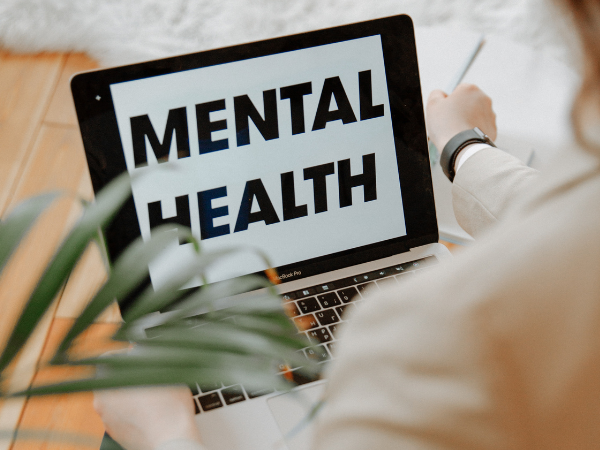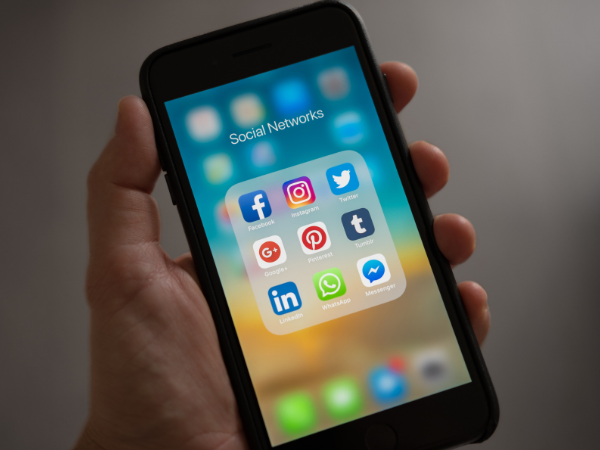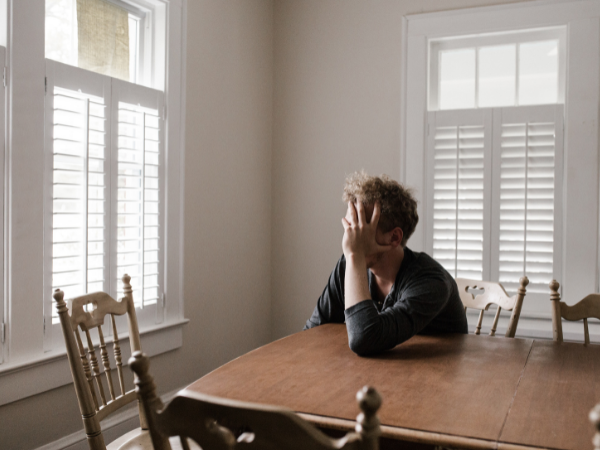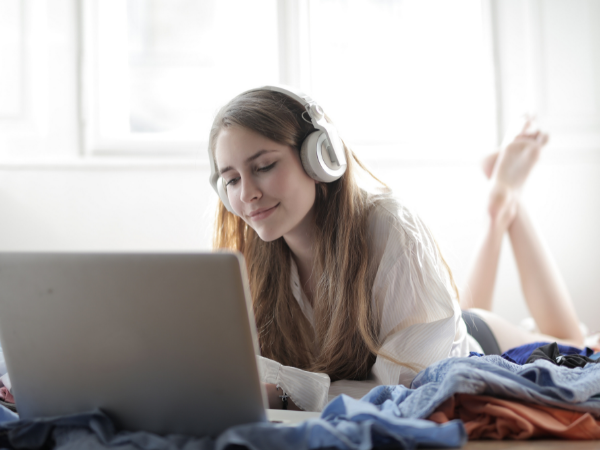How social media and mental health mix during the pandemic
You may not know it, but social media and mental health are important during the COVID-19 pandemic. Some experts believe they’re brewing a much larger public health crisis behind the scenes. How is this happening and what can you do against it?
We’ll start by talking about how the pandemic is affecting mental health around the world. More importantly, we’ll share some tips on how you can guard your mental health during this crisis. And then, we’ll explain the major role of social media in all this.
No matter your opinion regarding the pandemic, we can all agree that it’s simply not normal. This is why most of us cannot make sense of our lives during this crisis. We hope our tips below can help you cope while we wait for the virus to go away.
How was life before vs during the pandemic?
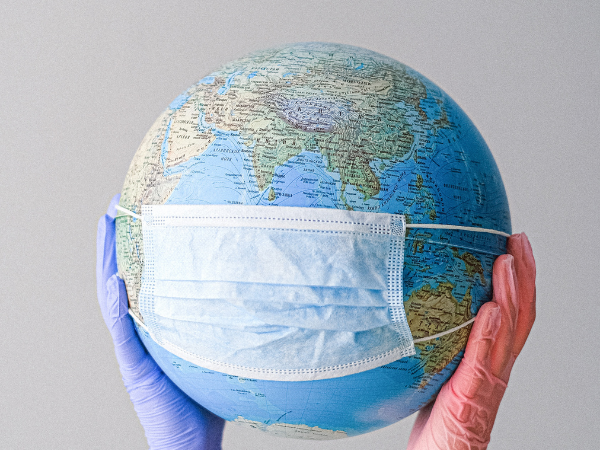
Before the pandemic, everyone could easily go out and meet face-to-face with family and friends. Everyone followed a routine. Not everyone liked it, but it was similar for most people.
From Monday to Friday, you can find most adults working their 9 to 5 jobs. Younger folks were at school. Then on the weekends, most people hang out in public spaces.
That all changed when the coronavirus came. Countries had to keep everyone indoors to avoid getting the disease. This was supposed to last two weeks until we’ve “flattened the curve.”
At the time of writing, people worldwide have lived as shut-ins for almost two years now. This has taken a toll on their mental health. And social media became a bigger part of our lives.
We tried to substitute social interaction with these platforms. As a result, more people work at home! We use Zoom more often for school and work.
How is the pandemic affecting mental health?
Online tools weren’t enough to satisfy our human needs. As it turns out, our former routines were vital for mental health. Here are the other reasons how a structured life helps people:
- Structure – We’ve seen countless fiction and real-life stories of people breaking free from their routines. However, it’s what kept everyone’s composure together. For example, you knew it was a weekday if your alarm clock rang. As a result, we now have more people who “can’t make sense of time” during the pandemic.
- Sense of accomplishment – We structure our lives based on our long-term goals. For example, young adults go to school every day to graduate after several years. Without these day-to-day activities, our lives seem to “play on a loop.”
- Informs others of what we’re doing – If you don’t show up for work, some might wonder what happened to you. When everyone’s at home often, it’s hard to know. As a result, more people are socially awkward now.
We lack these benefits during the pandemic. This is why more people experience anxiety and depression nowadays. What’s more, it negatively affects young people’s mental health.
According to the Pew Research Center, more of them are going through psychological distress. Adults ages 18-29 are likely to report loneliness and depression.
The upsides of social media and mental health during COVID
Facebook, Twitter, and other platforms play a major role in our lives during the pandemic. After all, they let us interact with others from far away. Here are other ways they help us:
- Find like-minded folks – It lets you meet people who have similar interests.
- Join groups – You could unite with others to work on certain issues.
- Give or receive emotional support – You may request help from friends and family. Social media platforms allow them to talk to you during tough times.
- Express yourself – The pandemic builds up lots of emotions in people. You could convert yours into creative energy. For example, it may inspire you to make a funny TikTok clip. Others channel their emotions to compose songs or draw art.
- Learn more – The internet has all the information you need. Even better, most of it is free! You just have to search for it.
Read More: What to Do When You’re Bored
The downsides of social media and mental health during COVID
All positive aspects come with negative ones. That includes time on social media. See how Facebook and Twitter could be bad for you:
- Feeling bad about yourself – You’ll often see someone’s best moments in their social media feed. You won’t find a lot of people sharing an embarrassing or depressing scenario in their life. Still, you could feel as if you’re not doing well in life.
- Obsessing with yourself – Your social media profile will revolve around you. Spend too much time with it, and you may start to act without regard for others. This could ruin your social skills too. After all, you might not bother empathizing if you only see yourself.
- Loneliness – The earlier issues can both cause isolation. Either you’ll withdraw from everyone else, or they’ll drift away from you.
- Anxiety and depression – This is often the result of the other effects we mentioned. Too much screen time can make you feel anxious and depressed.
How do I maintain mental health during the pandemic?
You’re not defenseless against social media and mental health issues. Follow these steps to keep your mind healthy:
- Limit the news in your life – People watch the news to understand what’s going on in the real world. However, you may gain a negative outlook after seeing so much bad stuff happening. Just look at the news for a few minutes, then move to other activities.
- Improve your physical health – You should include exercise in those other activities. It causes your brain to produce “happy chemicals.” They make you feel good and prevent depression. You may even improve how your body looks!
- Make a routine yourself – We said that it’s important to keep your mental health in tip-top shape. You don’t have to rely on others to structure your life. Do it yourself by scheduling your tasks.
- Distract yourself – Stop taking the whole pandemic seriously! Spend time doing hobbies like binge-watching Netflix or playing online games.
- Perform a “worry drop” – Spend some time every day with a journal to jot things that went well. Let’s say you took up gardening at home. You may write about how your plant bloomed. This can help you see everything else more positively.
Final thoughts
If you suspect you have symptoms of depression, speak with a close friend or relative. Perhaps you’ll feel better once you’ve spoken to someone you know.
If it gets worse, you might want to get professional help. Thankfully, telehealth services are easier to access nowadays. You may consult a doctor from the comfort of your home.
You may have to go and meet the physician for consultation. In that case, follow health guidelines in your country. This will help us all get past the pandemic!
Related Articles
Learn more about COVID-19, social media, and mental health
What are the effects of the COVID-19 pandemic on mental health?
The pandemic causes plenty of ill effects on people’s minds. For example, more people experience mental health problems like depression and anxiety. It also causes strange illnesses, though, such as losing their sense of time. After living for so long without their usual routine, they can’t distinguish among the days of the week.
What is the role of social media during the COVID-19 crisis?
Social media platforms allow people to connect with others no matter how far they are. It has both good and bad effects on people during the pandemic. However, it may also cause mental health problems like anxiety and depression. It’s up to you whether sites like Facebook and Twitter will help or harm you.
What can I do to keep myself healthy during the COVID-19 outbreak?
You may start by spending less time checking the news. Then, you may want to do more exercise every day, even if you’re just indoors. Spend more time doing fun stuff like watching online shows or bopping to the music. You might want to keep a journal where you’ll write all the good things that happen to you every day.

